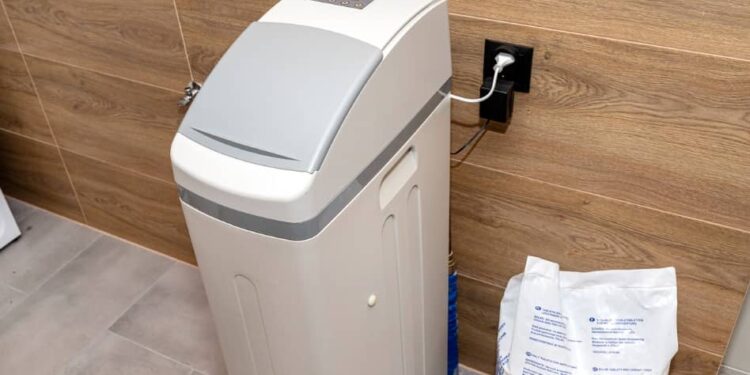Are you tired of dealing with hard water? If your dishes are cloudy, your skin feels dry, or you’re constantly battling soap scum in the shower, it might be time to consider a water softener. These clever systems can transform the quality of your home’s water supply by reducing minerals like calcium and magnesium that cause hardness. However, before diving into the world of water softeners, it’s essential to understand what they cost and how they can impact your household budget. Join us as we explore everything you need to know about water softener costs—so you can make an informed decision for a softer future!
Benefits of a Water Softener
Water softeners transform hard water into a more manageable form. This process helps eliminate the minerals that cause scale buildup.
One significant benefit is improved appliance longevity. Softened water reduces wear and tear on your washing machines, dishwashers, and water heaters. As a result, you can expect fewer repairs over time.
Your skin and hair also appreciate softer water. It feels better during showers and can help reduce dryness or irritation often caused by hard minerals.
Cleaning becomes easier too. You’ll find that soap lathers more effectively in softened water, which means less soap scum in sinks and tubs.
Consider the reduction in energy costs. Appliances running efficiently with soft water use less energy to operate, ultimately saving you money on bills each month.
Different Types of Water Softeners
When exploring water softeners, you’ll find various types tailored to different needs. One popular option is the ion exchange system. This method replaces hard minerals like calcium and magnesium with sodium ions, effectively reducing hardness.
Salt-free systems present another choice for those who prefer a more eco-friendly solution. These units utilize a process called template-assisted crystallization, which alters mineral structure without removing them.
Magnetic water softeners claim to change the properties of hard water through magnetic fields. While some users report benefits, scientific support for these devices remains limited.
Reverse osmosis systems not only soften water but also purify it by filtering out contaminants. They are versatile but may require additional maintenance due to their complexity.
Understanding each type can help you make an informed decision about what fits best in your home and lifestyle preferences.
Factors that Affect the Cost of a Water Softener
When considering water softener costs, several factors come into play. The type of system you choose significantly impacts the price. There are salt-based, salt-free, and dual-tank systems, each with varying costs.
The size of your household matters too. Larger homes typically require more powerful units which can drive up expenses. Additionally, if your water hardness level is high, you might need a more advanced model.
Installation complexity also affects total costs. Some systems are easier to install than others and may only need basic plumbing skills while others might require professional help.
Don’t forget about ongoing maintenance fees. Regular salt replenishment or filter changes can add to the long-term expense of owning a water softener.
Brand reputation plays a role in pricing as well; premium brands often carry higher initial investments but could offer better performance and longevity.
Average Costs for Installation and Maintenance
When considering water softener costs, installation and maintenance are key factors to keep in mind. The average cost for installing a water softener typically ranges from $1,000 to $3,000. This price can vary based on the type of system you choose and your home’s plumbing configuration.
Labor fees often account for a significant portion of the installation cost. Hiring a professional ensures proper setup and avoids potential issues later on.
Maintenance is another important aspect. Expect annual service costs between $100 and $300 depending on the model. Regular salt refills, cleaning, and occasional repairs contribute to this figure.
Keep in mind that some systems may require less frequent upkeep than others. Choosing the right unit can save you money long-term by reducing maintenance needs while ensuring optimal performance.
Tips for Choosing the Right Water Softener for Your Home
Selecting the right water softener for your home involves several key considerations.
Start by assessing your water hardness level. This information helps determine the capacity you need in a system.
Next, consider the size of your household. Larger families may require units with higher flow rates and larger tanks to handle increased demand efficiently.
Examine different types of systems available, such as salt-based or salt-free options. Each has its pros and cons depending on your specific needs and preferences.
Don’t forget to check for energy efficiency ratings as well. A more efficient model can save you money over time.
Read customer reviews and compare warranties offered by manufacturers. Reliable feedback can provide insights into product performance and durability that specifications alone might not reveal.
Alternative Options for Reducing Hard Water
If a water softener isn’t the right fit for you, there are other ways to tackle hard water issues. One option is using vinegar as a natural descaler. It can help dissolve mineral buildup in appliances and fixtures.
Another effective method involves installing a reverse osmosis system. This setup not only filters out minerals but also purifies your drinking water, enhancing its quality significantly.
You might also consider using citric acid or baking soda when doing laundry or cleaning. These household items can mitigate some of the effects of hard water on clothes and surfaces.
Showerhead filters designed to reduce mineral deposits provide an easy fix for hard water while keeping your skin and hair healthy. Each alternative has unique benefits that cater to different needs without committing to traditional softening systems.
Conclusion
When considering water softener costs, it’s essential to weigh both the initial investment and ongoing maintenance. Water softeners can significantly improve your quality of life by providing softer water for bathing, cleaning, and cooking. The long-term savings on plumbing repairs and soap usage often outweigh the upfront costs.
Choosing the right system involves understanding your specific needs and budget. Whether you opt for a salt-based model or an alternative method, be sure to factor in installation fees along with potential maintenance expenses down the line.
With various options available, including DIY methods for reducing hard water issues, you’re not limited to just one solution. Assessing all these factors will empower you to make an informed decision tailored to your home’s unique requirements.
By carefully evaluating each aspect of purchasing a water softener—from its benefits to cost considerations—you’ll be better equipped to enhance your household’s comfort while ensuring that every dollar spent is worth it in improved lifestyle quality.







